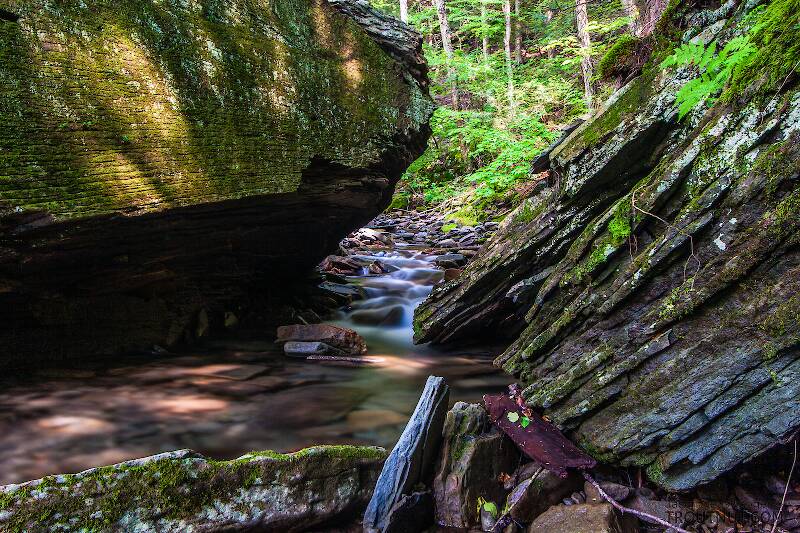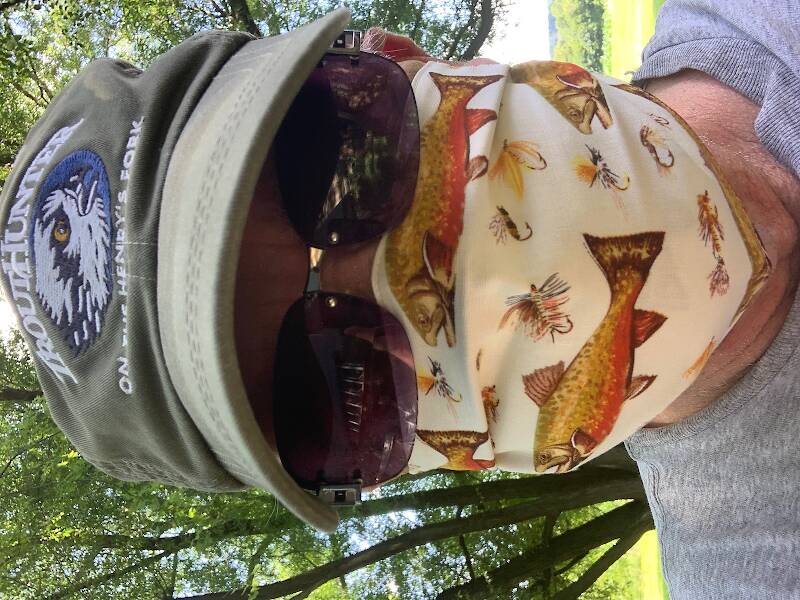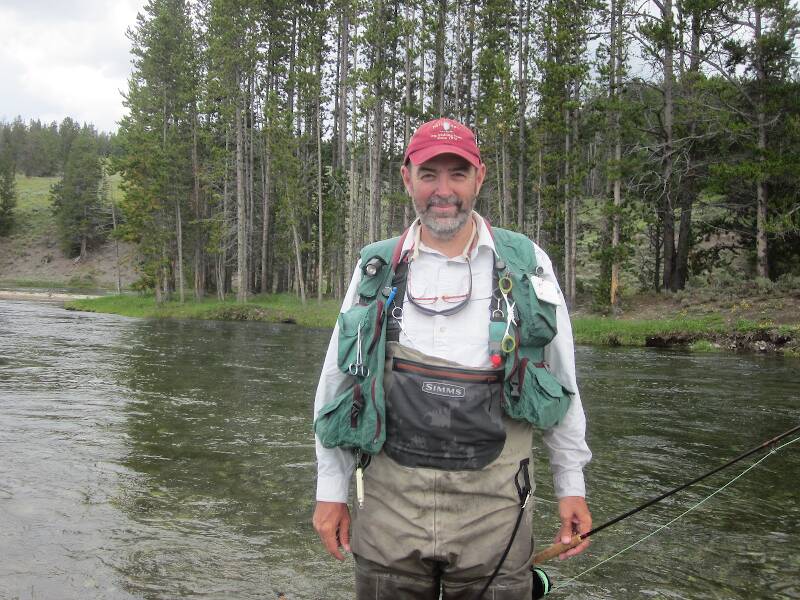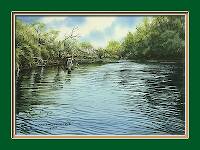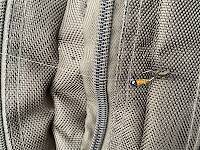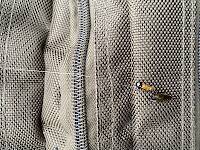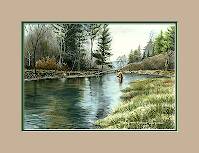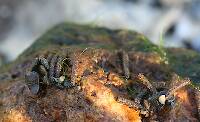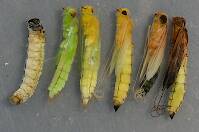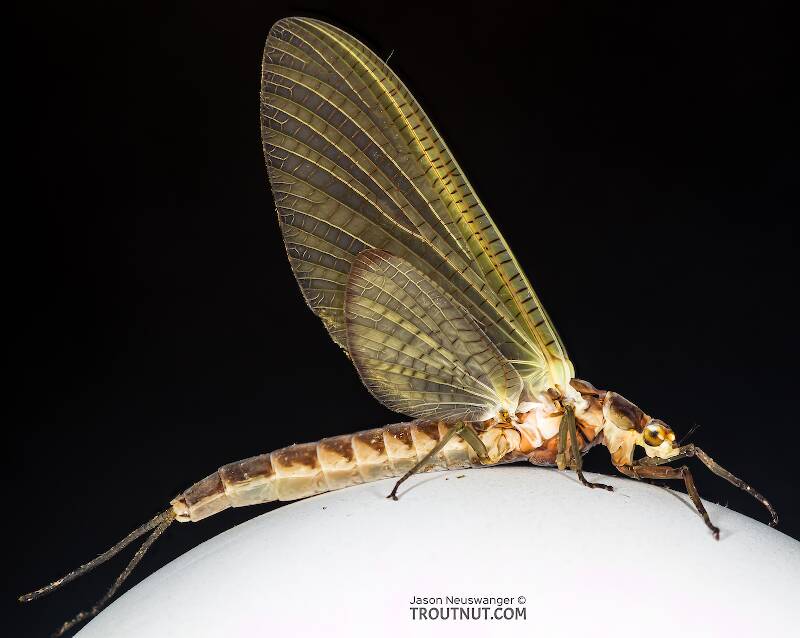
Hex Mayflies
Hexagenia limbata
The famous nocturnal Hex hatch of the Midwest (and a few other lucky locations) stirs to the surface mythically large brown trout that only touch streamers for the rest of the year.
Featured on the forum

Troutnut is a project started in 2003 by salmonid ecologist Jason "Troutnut" Neuswanger to help anglers and
fly tyers unabashedly embrace the entomological side of the sport. Learn more about Troutnut or
support the project for an enhanced experience here.
Softhackle on Mar 31, 2010March 31st, 2010, 5:14 am EDT
Hi Everyone,
Thought I'd share my new work.
Original Watercolor- Image size 14" X 9.75" - "Battling a Brown - June"
"Battling A Brown - June"
Pretty soon!
Mark
Thought I'd share my new work.
Original Watercolor- Image size 14" X 9.75" - "Battling a Brown - June"
"Battling A Brown - June"
Pretty soon!
Mark
"I have the highest respect for the skilled wet-fly fisherman, as he has mastered an art of very great difficulty." Edward R. Hewitt
Flymphs, Soft-hackles and Spiders: http://www.troutnut.com/libstudio/FS&S/index.html
Flymphs, Soft-hackles and Spiders: http://www.troutnut.com/libstudio/FS&S/index.html
Wiflyfisher on Mar 31, 2010March 31st, 2010, 5:57 am EDT
Outstanding work, Mark!!!!
John S.
https://WiFlyFisher.com
https://WiFlyFisher.com
Shawnny3 on Mar 31, 2010March 31st, 2010, 9:15 am EDT
Very pretty, Mark.
-Shawn
-Shawn
Jewelry-Quality Artistic Salmon Flies, by Shawn Davis
www.davisflydesigns.com
www.davisflydesigns.com
Oldredbarn on Mar 31, 2010March 31st, 2010, 9:30 am EDT
Mark,
Let's see...June...Maybe he took one of your Little Dorothy's, or a Light Snipe & Yellow, maybe a Tup's...
Very nice! Are you going to make prints?
Spence
PS I knew you were up to something. You've been a little quiet here on this site...When the Muse strikes, eh.
Let's see...June...Maybe he took one of your Little Dorothy's, or a Light Snipe & Yellow, maybe a Tup's...
Very nice! Are you going to make prints?
Spence
PS I knew you were up to something. You've been a little quiet here on this site...When the Muse strikes, eh.
"Even when my best efforts fail it's a satisfying challenge, and that, after all, is the essence of fly fishing." -Chauncy Lively
"Envy not the man who lives beside the river, but the man the river flows through." Joseph T Heywood
"Envy not the man who lives beside the river, but the man the river flows through." Joseph T Heywood
Patcrisci on Mar 31, 2010March 31st, 2010, 11:17 am EDT
Very nice, Mark. What a beautiful spot, beautiful painting.
Pat Crisci
Lastchance on Mar 31, 2010March 31st, 2010, 11:36 am EDT
That's beautiful, Mark. Do you sell any of your work?
Bruce
Bruce
Softhackle on Mar 31, 2010March 31st, 2010, 2:13 pm EDT
Thanks everyone for the feedback.
Spence,
I have been considering getting prints done as I've been asked about my paintings and prints in the past. Another good friend and fly fisherman has been pleading with me to get my work into print, however I'm a bit doubtful about making the investment. With the way the economy is, I'm not sure I'd make the investment back. What do you think?
Bruce,
Yes, I've sold my work in the past. This particular painting is, essentially, already sold. I've sold to a number of private buyers, both my watercolors and pen and ink drawings. I've also had pen and ink art used, albeit some years back, as illustrations for Fly Fisherman Magazine.
Mark
Spence,
I have been considering getting prints done as I've been asked about my paintings and prints in the past. Another good friend and fly fisherman has been pleading with me to get my work into print, however I'm a bit doubtful about making the investment. With the way the economy is, I'm not sure I'd make the investment back. What do you think?
Bruce,
Yes, I've sold my work in the past. This particular painting is, essentially, already sold. I've sold to a number of private buyers, both my watercolors and pen and ink drawings. I've also had pen and ink art used, albeit some years back, as illustrations for Fly Fisherman Magazine.
Mark
"I have the highest respect for the skilled wet-fly fisherman, as he has mastered an art of very great difficulty." Edward R. Hewitt
Flymphs, Soft-hackles and Spiders: http://www.troutnut.com/libstudio/FS&S/index.html
Flymphs, Soft-hackles and Spiders: http://www.troutnut.com/libstudio/FS&S/index.html
Oldredbarn on Apr 1, 2010April 1st, 2010, 4:07 pm EDT
Mark,
Check this guys stuff out...www.davidruimveldstudio.com/...He's from here in Michigan and lives up north near the Pine River. He has a whole river series he has done...Years ago my wife bought me one of his prints of the Au Sable. It shows a map of the river with all the fishermen's names for the sites along the river with a big Brown trout as the center of the print and a few flies from the area...She had my friend Bill tie up a dozen or so flies and had it all professioally framed. It hangs in my office.
I showed her your new work and she really liked it.
I guess it all comes down to how much you want to hassle with the business side of things. Dave mentioned above is at all the shows and has to be a salesman as well as the artist...I guess it has it's pros & cons...He also has some nice upland game bird prints. He sells them in what fly shops we still have left here in this state...
I had a favorite uncle that painted and could never bring himself to sell anything...He and his wife met in art school. You either were lucky enough to recieve a painting as a gift from him or bid on one at the family reunion auctions...The rest are owned by his children or hang in his widow's home.
Lisa and I can't believe it's a water color...Incredible!
Spence
Check this guys stuff out...www.davidruimveldstudio.com/...He's from here in Michigan and lives up north near the Pine River. He has a whole river series he has done...Years ago my wife bought me one of his prints of the Au Sable. It shows a map of the river with all the fishermen's names for the sites along the river with a big Brown trout as the center of the print and a few flies from the area...She had my friend Bill tie up a dozen or so flies and had it all professioally framed. It hangs in my office.
I showed her your new work and she really liked it.
I guess it all comes down to how much you want to hassle with the business side of things. Dave mentioned above is at all the shows and has to be a salesman as well as the artist...I guess it has it's pros & cons...He also has some nice upland game bird prints. He sells them in what fly shops we still have left here in this state...
I had a favorite uncle that painted and could never bring himself to sell anything...He and his wife met in art school. You either were lucky enough to recieve a painting as a gift from him or bid on one at the family reunion auctions...The rest are owned by his children or hang in his widow's home.
Lisa and I can't believe it's a water color...Incredible!
Spence
"Even when my best efforts fail it's a satisfying challenge, and that, after all, is the essence of fly fishing." -Chauncy Lively
"Envy not the man who lives beside the river, but the man the river flows through." Joseph T Heywood
"Envy not the man who lives beside the river, but the man the river flows through." Joseph T Heywood
Softhackle on Apr 2, 2010April 2nd, 2010, 2:15 am EDT
Hi Spence,
I can see why David's work sells. You must be prolific, which I really have not been, although I do have a few pieces under my belt. Once you get started, you sell more because your work becomes known and collectible. It is the initial investment that is slowing me down. When you are as poor as I am, laying out money to have prints made is something that must be scrutinized heavily. I am considering it, however because if it DOES generate some income, it'd be great.
I have painted in watercolors since I was 13. I'm not talking about just in school either. I wanted to seriously know how to work in watercolors at that point. I saved my allowances ( remember those?) and went to the city to purchase professional materials to work with. My local library offered books in the "how to" area, and I began to paint via the books of a great watercolorist named Ted Kautsky. The results were rather disappointing, and I wasted a lot of materials, but all those mistakes, brought me to where I am.
Painting with watercolors is a process where one understands the nature of the media and uses it to create personal images which, hopefully, strikes a responsive chord with those that view the work.
Mark
I can see why David's work sells. You must be prolific, which I really have not been, although I do have a few pieces under my belt. Once you get started, you sell more because your work becomes known and collectible. It is the initial investment that is slowing me down. When you are as poor as I am, laying out money to have prints made is something that must be scrutinized heavily. I am considering it, however because if it DOES generate some income, it'd be great.
I have painted in watercolors since I was 13. I'm not talking about just in school either. I wanted to seriously know how to work in watercolors at that point. I saved my allowances ( remember those?) and went to the city to purchase professional materials to work with. My local library offered books in the "how to" area, and I began to paint via the books of a great watercolorist named Ted Kautsky. The results were rather disappointing, and I wasted a lot of materials, but all those mistakes, brought me to where I am.
Painting with watercolors is a process where one understands the nature of the media and uses it to create personal images which, hopefully, strikes a responsive chord with those that view the work.
Mark
"I have the highest respect for the skilled wet-fly fisherman, as he has mastered an art of very great difficulty." Edward R. Hewitt
Flymphs, Soft-hackles and Spiders: http://www.troutnut.com/libstudio/FS&S/index.html
Flymphs, Soft-hackles and Spiders: http://www.troutnut.com/libstudio/FS&S/index.html
Oldredbarn on Apr 2, 2010April 2nd, 2010, 4:53 am EDT
Mark,
A million years ago I was on a honeymoon to Quebec City with my first wife. We stayed in a nice little hotel right in the heart of the old part of the city. There was an alley that ran from our street to the next and in that alley artists sold stuff on the walls. There was a small museum in that alley that we visited and they had a water-colors exhibit. It was wonderful! Some of the impressionistic things that can be hinted at with watercolor was beautiful. I was a broke university student who would of been better served if he had skipped the marriage thing so young, but hey! I never would of been able to tell this story otherwise.
I had been to Quebec the year before with a friend and had stayed in the same hotel. I wrote a letter to the woman who ran the place to book my honeymoon trip there. I asked for the second story room with a balcony over the street because it was, so I thought, romantic. When we got there, it turns out, they were re-doing the street out front and our cab couldn't even pull up to the front door...Instead of romantic sounds of old Quebec in the morning we heard jack-hammers and cursing Quebecois workmen! What a premonition, eh!? The marriage lasted 3 years.
Spence
Two Tramps in Mud Time
by Robert Frost © 1934 New York, Spiral Press
Out of the mud two strangers came
And caught me splitting wood in the yard,
And one of them put me off my aim
By hailing cheerily "Hit them hard!"
I knew pretty well why he had dropped behind
And let the other go on a way.
I knew pretty well what he had in mind:
He wanted to take my job for pay.
Good blocks of oak it was I split,
As large around as the chopping block;
And every piece I squarely hit
Fell splinterless as a cloven rock.
The blows that a life of self-control
Spares to strike for the common good,
That day, giving a loose to my soul,
I spent on the unimportant wood.
The sun was warm but the wind was chill.
You know how it is with an April day
When the sun is out and the wind is still,
You're one month on in the middle of May.
But if you so much as dare to speak,
A cloud comes over the sunlit arch,
A wind comes off a frozen peak,
And you're two months back in the middle of March.
A bluebird comes tenderly up to alight
And turns to the wind to unruffle a plume,
His song so pitched as not to excite
A single flower as yet to bloom.
It is snowing a flake; and he half knew
Winter was only playing possum.
Except in color he isn't blue,
But he wouldn't advise a thing to blossom.
The water for which we may have to look
In summertime with a witching wand,
In every wheelrut's now a brook,
In every print of a hoof a pond.
Be glad of water, but don't forget
The lurking frost in the earth beneath
That will steal forth after the sun is set
And show on the water its crystal teeth.
The time when most I loved my task
The two must make me love it more
By coming with what they came to ask.
You'd think I never had felt before
The weight of an ax-head poised aloft,
The grip of earth on outspread feet,
The life of muscles rocking soft
And smooth and moist in vernal heat.
Out of the wood two hulking tramps
(From sleeping God knows where last night,
But not long since in the lumber camps).
They thought all chopping was theirs of right.
Men of the woods and lumberjacks,
They judged me by their appropriate tool.
Except as a fellow handled an ax
They had no way of knowing a fool.
Nothing on either side was said.
They knew they had but to stay their stay
And all their logic would fill my head:
As that I had no right to play
With what was another man's work for gain.
My right might be love but theirs was need.
And where the two exist in twain
Theirs was the better right – agreed.
But yield who will to their separation,
My object in living is to unite
My avocation and my vocation
As my two eyes make one in sight.
Only where love and need are one,
And the work is play for mortal stakes,
Is the deed ever really done
For Heaven and the future's sakes.
A million years ago I was on a honeymoon to Quebec City with my first wife. We stayed in a nice little hotel right in the heart of the old part of the city. There was an alley that ran from our street to the next and in that alley artists sold stuff on the walls. There was a small museum in that alley that we visited and they had a water-colors exhibit. It was wonderful! Some of the impressionistic things that can be hinted at with watercolor was beautiful. I was a broke university student who would of been better served if he had skipped the marriage thing so young, but hey! I never would of been able to tell this story otherwise.
I had been to Quebec the year before with a friend and had stayed in the same hotel. I wrote a letter to the woman who ran the place to book my honeymoon trip there. I asked for the second story room with a balcony over the street because it was, so I thought, romantic. When we got there, it turns out, they were re-doing the street out front and our cab couldn't even pull up to the front door...Instead of romantic sounds of old Quebec in the morning we heard jack-hammers and cursing Quebecois workmen! What a premonition, eh!? The marriage lasted 3 years.
Spence
Two Tramps in Mud Time
by Robert Frost © 1934 New York, Spiral Press
Out of the mud two strangers came
And caught me splitting wood in the yard,
And one of them put me off my aim
By hailing cheerily "Hit them hard!"
I knew pretty well why he had dropped behind
And let the other go on a way.
I knew pretty well what he had in mind:
He wanted to take my job for pay.
Good blocks of oak it was I split,
As large around as the chopping block;
And every piece I squarely hit
Fell splinterless as a cloven rock.
The blows that a life of self-control
Spares to strike for the common good,
That day, giving a loose to my soul,
I spent on the unimportant wood.
The sun was warm but the wind was chill.
You know how it is with an April day
When the sun is out and the wind is still,
You're one month on in the middle of May.
But if you so much as dare to speak,
A cloud comes over the sunlit arch,
A wind comes off a frozen peak,
And you're two months back in the middle of March.
A bluebird comes tenderly up to alight
And turns to the wind to unruffle a plume,
His song so pitched as not to excite
A single flower as yet to bloom.
It is snowing a flake; and he half knew
Winter was only playing possum.
Except in color he isn't blue,
But he wouldn't advise a thing to blossom.
The water for which we may have to look
In summertime with a witching wand,
In every wheelrut's now a brook,
In every print of a hoof a pond.
Be glad of water, but don't forget
The lurking frost in the earth beneath
That will steal forth after the sun is set
And show on the water its crystal teeth.
The time when most I loved my task
The two must make me love it more
By coming with what they came to ask.
You'd think I never had felt before
The weight of an ax-head poised aloft,
The grip of earth on outspread feet,
The life of muscles rocking soft
And smooth and moist in vernal heat.
Out of the wood two hulking tramps
(From sleeping God knows where last night,
But not long since in the lumber camps).
They thought all chopping was theirs of right.
Men of the woods and lumberjacks,
They judged me by their appropriate tool.
Except as a fellow handled an ax
They had no way of knowing a fool.
Nothing on either side was said.
They knew they had but to stay their stay
And all their logic would fill my head:
As that I had no right to play
With what was another man's work for gain.
My right might be love but theirs was need.
And where the two exist in twain
Theirs was the better right – agreed.
But yield who will to their separation,
My object in living is to unite
My avocation and my vocation
As my two eyes make one in sight.
Only where love and need are one,
And the work is play for mortal stakes,
Is the deed ever really done
For Heaven and the future's sakes.
"Even when my best efforts fail it's a satisfying challenge, and that, after all, is the essence of fly fishing." -Chauncy Lively
"Envy not the man who lives beside the river, but the man the river flows through." Joseph T Heywood
"Envy not the man who lives beside the river, but the man the river flows through." Joseph T Heywood
Softhackle on Jul 27, 2010July 27th, 2010, 8:51 am EDT
Hi All,
I know Jason said it'd be okay in an earlier posting of some of my work, but if it is not, Jason can remove the post. I do have some of this painting's prints. A few of our friends, here, already own copies. These are very limited, and if you are interested, you can contact me. Jason feel free to remove this if you feel it is inappropriate.
Mark
I know Jason said it'd be okay in an earlier posting of some of my work, but if it is not, Jason can remove the post. I do have some of this painting's prints. A few of our friends, here, already own copies. These are very limited, and if you are interested, you can contact me. Jason feel free to remove this if you feel it is inappropriate.
Mark
"I have the highest respect for the skilled wet-fly fisherman, as he has mastered an art of very great difficulty." Edward R. Hewitt
Flymphs, Soft-hackles and Spiders: http://www.troutnut.com/libstudio/FS&S/index.html
Flymphs, Soft-hackles and Spiders: http://www.troutnut.com/libstudio/FS&S/index.html
Gutcutter on Aug 1, 2010August 1st, 2010, 9:14 am EDT
all
i am proud to own #6 out of a limited edition of 25, signed and remarked.
it is in my flytyingroom/homeoffice. everybody who comes over gravitates to that print first. and i have several much more famous artist's prints in there.
get one while you can
tony
i am proud to own #6 out of a limited edition of 25, signed and remarked.
it is in my flytyingroom/homeoffice. everybody who comes over gravitates to that print first. and i have several much more famous artist's prints in there.
get one while you can
tony
All men who fish may in turn be divided into two parts: those who fish for trout and those who don't. Trout fishermen are a race apart: they are a dedicated crew- indolent, improvident, and quietly mad.
-Robert Traver, Trout Madness
-Robert Traver, Trout Madness
Bobbyg on Aug 1, 2010August 1st, 2010, 11:22 am EDT
A very fine watercolor Mark!
I appreciate and love looking at good watercolor images.
Yours is certainly that! The details are delightful.
I can imagine myself there, all alone, except for my most respected adversary, the brown trout.
I appreciate and love looking at good watercolor images.
Yours is certainly that! The details are delightful.
I can imagine myself there, all alone, except for my most respected adversary, the brown trout.
"Many men go fishing all of their lives without knowing it is not fish they are after."
- Henry David Thoreau
- Henry David Thoreau
Softhackle on Aug 2, 2010August 2nd, 2010, 2:53 am EDT
Tony and Bobby,
Thanks for the positive feedback regarding the artwork. I consider this one of my best fly fishing paintings, which is one reason I had prints made. I's nice to hear that people like it and are enjoying my work.
Mark
Thanks for the positive feedback regarding the artwork. I consider this one of my best fly fishing paintings, which is one reason I had prints made. I's nice to hear that people like it and are enjoying my work.
Mark
"I have the highest respect for the skilled wet-fly fisherman, as he has mastered an art of very great difficulty." Edward R. Hewitt
Flymphs, Soft-hackles and Spiders: http://www.troutnut.com/libstudio/FS&S/index.html
Flymphs, Soft-hackles and Spiders: http://www.troutnut.com/libstudio/FS&S/index.html
Quick Reply
Related Discussions
Topic
Replies
Last Reply
13
Feb 22, 2015
by PaulRoberts
by PaulRoberts

